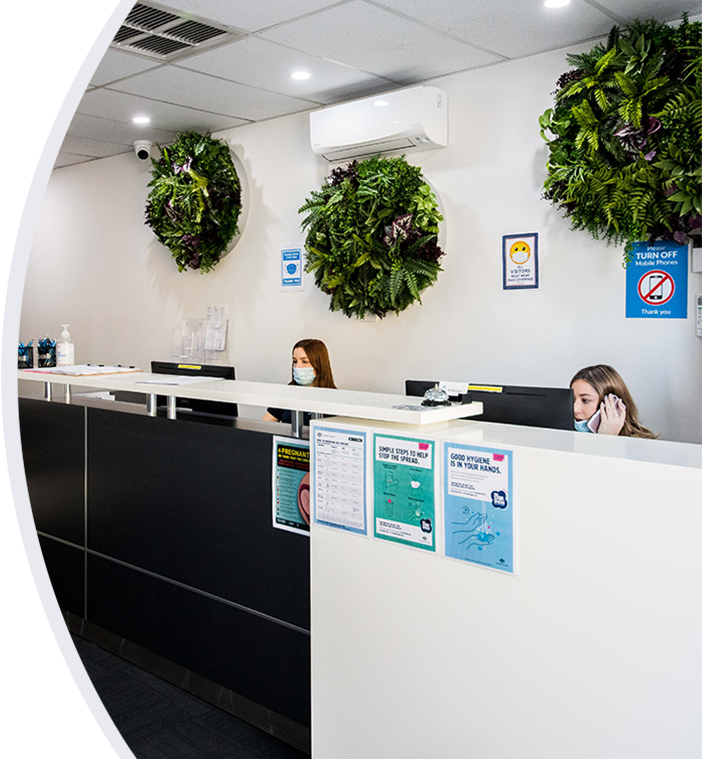Mammography
What is mammography
A mammogram is an X-ray examination of the breasts to look for abnormalities in the breast tissue.
A mammogram helps to determine whether an abnormality in the breast tissue is benign, or potentially malignant, requiring further investigation.
Breast tomosynthesis (3D mammography) is an advanced form of mammography, providing 3D imaging of the breast, allowing for greater detection of abnormalities.
Why have I been referred for a mammogram?
A diagnostic mammogram is usually performed to investigate a change in the breast, pain or other abnormality detected during a physical examination.
Screening mammograms may be performed routinely for people who have a higher risk of developing breast cancer.
How do I prepare for a mammogram?
During the scan, your breasts are slowly compressed between two plates. As some patients can find the pressure uncomfortable, it is recommended to schedule your booking one week after your menstrual period. Please inform our staff if you have breast implants as we may need to allow for a longer appointment.
Please avoid using the following on the morning of your scan as these substances may affect the quality of the images:
- deodorant,
- perfume or
- talcum powder
We also recommend wearing a two piece outfit to assist with changing.
What happens during a mammogram?
A female radiographer who specialises in mammography will ask you a few questions about your current symptoms and medical history.
Each breast will be examined one at a time by being placed between two specialised plates and compressed whilst the X-ray is being taken. The compression improves the quality of the image, making it easier to detect an abnormality.
How long will my mammogram take?
A standard 3D Mammogram usually takes 10-15 minutes to perform. Mammograms are typically performed in conjunction with an ultrasound. Please allow about 1 hour in our clinic.
What are the risks of a mammogram?
Mammography uses X-rays so it comes with the same risks of radiation as an X-ray scan. The dose of radiation used is low making the risks rare.
The risks associated with radiation include:
- A small increase in the risk of developing cancer. This low risk is outweighed by the benefit of the scan itself in detecting breast cancer.
When do I get my mammogram results?
Your images will be reviewed by our radiologist (specialist doctor) and the report will be sent to your doctor within a few days. Please see your doctor to discuss the results.

We offer accessible services by bulk billing almost all examinations and procedures. To find out more, visit our billing information page.
Complete our booking form and one of our friendly staff will contact you – it’s quick, and easy. Click on the below link and follow the simple steps. Remember to have your referral handy.


















